The Return
"When Qaddafi took my father," Hisham Matar writes in the long-awaited nonfiction account of his father's disappearance, "he placed me in a space not much bigger than the cell Father was in. I paced back and forth, anger in one direction, hatred in the other, until I could feel my insides grow small and hard."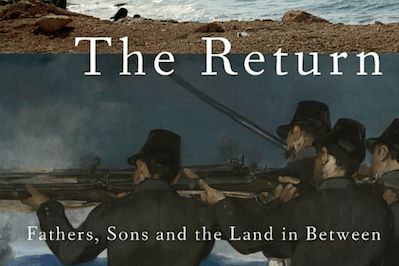
Random House
| To see long excerpts from “The Return” at Google Books, click here. |
“The Return: Fathers, Sons and the Land in Between”
A book by Hisham Matar
When Hisham Matar was 12 years old, a hair-raising incident revealed to him just how marked a man his father Jaballa, a Libyan exile agitating against Moammar Gadhafi’s regime, had become. Matar, flying from Cairo to Geneva, had often wondered why his dad, due to meet him at the airport, went in for cloak-and-dagger behavior. On this occasion, Jaballa had told his son that if they didn’t cross paths at the arrivals terminal, he should ask someone at the information desk to call for him over the public address system — using an alias. When, after some confusion, the two found each other and began making their way to the airport’s exit, “we passed two men speaking Arabic with a perfect Libyan accent,” Matar recalls. “‘So what does this Jaballa Matar look like anyway?’ one of them asked the other. I went silent and never complained about my father’s complicated travel arrangements after that.”
The hand that ultimately snatched his father, when Matar was 19 and studying at university in London, belonged, scandalously, to Egyptian dictator Hosni Mubarak. Mubarak’s security agents kidnapped the 50ish Jaballa from the Matar family’s Cairo apartment and delivered him to their Libyan counterparts. The Egyptian authorities then lied to the Matars, telling them that Jaballa remained in their custody and that, so as not to “complicate the situation,” they would do best to keep quiet. For a long time, the family did just that.
In a way, Matar, now on the cusp of his 46th birthday, has been writing about his father from the start. Indeed, before his articles and interviews on the subject, there was his first novel. “In the Country of Men,” set in Libya’s capital, Tripoli, revolves around a pre-adolescent boy trying to make sense of his dad’s increasingly precarious life — and then his arrest. The author’s second novel, “Anatomy of a Disappearance,” which takes place in Cairo and London, similarly concerns attempts by a young teen to determine what happened to his father, an exiled political figure (from an unnamed Arab country resembling Iraq) who is abducted in Switzerland.
“The Return,” Matar’s latest work, is subtitled “Fathers, Sons and the Land in Between.” For readers (such as this reviewer) who’ve always suspected that the true story is more compelling than its twin transmutations into fiction, this long-awaited nonfiction book will provide satisfying confirmation. For those already enthralled by Matar the novelist, “The Return” — a portion of which appeared in The New Yorker — offers an irresistible opportunity to connect his elliptical fiction to the real-life experiences that serve as its ingredients.
As for Matar himself, he resists the temptation to cast his family’s ordeal purely as a detective story, even though such an approach would have given his book an identifiable structure and in all likelihood increased its sales. Instead, the author alternates between two narratives, only one of which emerges as an account, suitably tense and intrigue-filled, of a decades-long quest to pluck clues from a void. The other approach, impressionistic and digressive, takes in everything from history to architecture as it explores how Jaballa Matar’s murky fate became “a place of shadows where the only way to engage with what happened is through the imagination, an activity that serves only to excite the past, multiplying its possibilities, like a house with endless rooms, inescapable and haunted.”
 The ReturnPurchase in the Truthdig Bazaar
The ReturnPurchase in the Truthdig BazaarThis latter, unpredictable narrative also probes how Jaballa’s absence shaped his son. The reader cannot but marvel that Matar grew into a well-adjusted man, let alone a successful writer. “When Qaddafi took my father,” he writes, “he placed me in a space not much bigger than the cell Father was in. I paced back and forth, anger in one direction, hatred in the other, until I could feel my insides grow small and hard. … That was how I spent most of my twenties.” By the time he had reached his 30s, far from sublimating such rage and hatred into fine if narrowly themed fiction, Matar was making scant headway on his first novel. In fact, he had come perilously close to allowing his inner demons to consume him. So much so, he writes, that “I found myself standing at the edge of the Pont d’Arcole [a bridge over the Seine River] in Paris, staring into the green rushing waters below” — and contemplating suicide.
The portion of “The Return” that resembles a detective story begins with an unexpected revelation. “It was clear that he had been shot or hanged or starved or tortured to death,” Matar writes of his father in the very first chapter. He discovered as much during the Libyan revolution/civil war in 2011, when rebels broke into the notorious Abu Salim prison complex — from which Jaballa had smuggled out three letters in the mid-1990s — and set the inmates free. Jaballa was not among them.
Later in the book, when Matar backtracks to 2009, something even stranger happens. That was the year a recently released Libyan prisoner informed the author that he had come across his father at a jail dubbed “the Mouth of Hell” in 2002. “If it were true, it would have been the only time anyone had seen my father after 1996, after the massacre,” writes Matar, referring to the notorious mass execution of over 1,200 prisoners at Abu Salim in 1996. The reader — against all common sense, given what the author makes known about his father in the first chapter — is overcome by a sense of urgency.
Sometimes, when Matar brings together both narratives, they end up colliding rather than complementing each other. The most comical instance of this occurs when the author recounts the audience he was finally granted with David Miliband, the U.K.’s foreign secretary at the time (2010). This came following a public campaign to persuade the U.K., which was then cozying up to Gadhafi’s regime, to insist that the latter reveal the whereabouts of Jaballa and other political detainees. The unlikely novelist from Libya had made his way into the corridors of power in his adopted but long-indifferent country, and would now demand justice for his father.
How does Matar the writer convey the stress and anger roiling within Matar the avenging son? He doesn’t, opting for erudite divagation instead. “The Foreign and Commonwealth Office building is architecturally interesting in the way that it suffers from conflicting influences,” the author observes, remarkably detached. “Its architect, George Gilbert Scott, was an exponent of the gothic revival, an architectural movement that…” He goes on for a while in this discordant manner before circling back to the pressing subject of the meeting.
Matar’s return to Libya after an absence of over three decades (the family left when he was 8) brings about the successful merging of his two narratives, and gives the book its title. Accompanied by his wife and mother, the author traveled to his homeland in 2012, after NATO-supported rebels had liberated the country but before it descended into lawlessness and factional fighting. Matar, now resigned to the fact that his father was no longer alive, nevertheless wanted to uncover the circumstances of his death. If successful, he might finally depart that aforementioned “place of shadows” where he’d languished for so long.
“The Return” comes at a time when the most extreme forms of cynicism regarding the Arab Spring, of which Libya’s revolution was a part, have infected both the mainstream left and right across the Western world. Just look at what many people — in contending with the rise of Islamists and jihadists, the spread of violence, and the uncertain future trajectory of several countries — now call the ongoing aftermath of that string of uprisings: the Arab Winter. Even worse, they claim that the toppling of tyrannical regimes in Libya and other countries (and, before the Arab Spring, in Iraq) rendered this Arab Winter inevitable. Who will point out that such a judgment springs from a toxic mix of nonsensical determinism and borderline racism?
To be sure, Matar’s assertion that “[t]he calamity that followed the fall of Qaddafi is more true to the nature of his dictatorship than the ideals of the revolution” proves somewhat reductive. The revolution in Libya, like most that swept the region, was both launched and joined by people espousing different and even competing ideals. Nevertheless, the author hits his mark with the observation: “Those who would later lament Seif [Gadhafi’s son] and his father’s regime are like a man who looks at the ashes and says, ‘I much prefer the fire.’”
That’s why this book is important. “The Return” reacquaints us with the barbarity of Gadhafi, exposes little-known machinations engaged in by his cunning son (and then-darling of the British) Seif al-Islam, and demonstrates the extent to which the regime ravaged one family, the Matars, among thousands. All this makes it that much more difficult for glib “devil you know” enthusiasts to convince us that we should pine for the pre-Arab Spring era.
Independent journalism is under threat and overshadowed by heavily funded mainstream media.
You can help level the playing field. Become a member.
Your tax-deductible contribution keeps us digging beneath the headlines to give you thought-provoking, investigative reporting and analysis that unearths what's really happening- without compromise.
Give today to support our courageous, independent journalists.

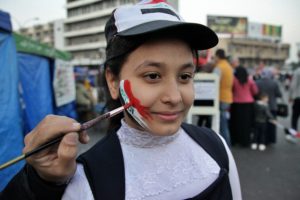
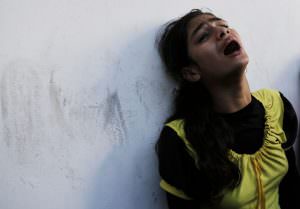
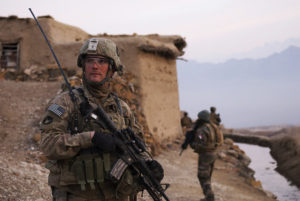
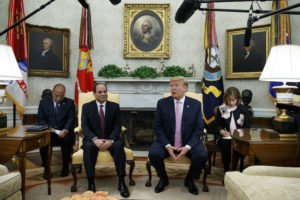

You need to be a supporter to comment.
There are currently no responses to this article.
Be the first to respond.